
Greater Queens Podiatry, PLLC
 (718) 229-0222
(718) 229-0222
 (718) 229-0222
(718) 229-0222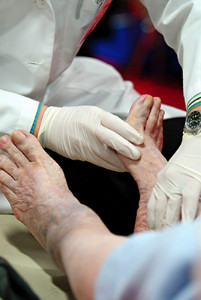 When thinking about our body and our general health, the feet are often overlooked and ignored until considerable pain or changes occur. This habit can be especially damaging for seniors, who are more likely to experience the effects of neglecting foot health at their older age. Many aches and pains are caused by ill-fitting shoes that don’t offer support. Underlying conditions, like diabetes, rheumatoid arthritis, weight gain, and prior injury, can also be a cause of pain. Outside of the podiatrist’s office, seniors can maintain foot health by ensuring that their feet are kept clean and by trimming their nails to an appropriate length.
When thinking about our body and our general health, the feet are often overlooked and ignored until considerable pain or changes occur. This habit can be especially damaging for seniors, who are more likely to experience the effects of neglecting foot health at their older age. Many aches and pains are caused by ill-fitting shoes that don’t offer support. Underlying conditions, like diabetes, rheumatoid arthritis, weight gain, and prior injury, can also be a cause of pain. Outside of the podiatrist’s office, seniors can maintain foot health by ensuring that their feet are kept clean and by trimming their nails to an appropriate length.
Proper foot care is something many older adults forget to consider. If you have any concerns about your feet and ankles, contact our podiatrists from Greater Queens Podiatry, PLLC. Our doctors can provide the care you need to keep you pain-free and on your feet.
The Elderly and Their Feet
As we age we start to notice many changes in our body, but the elder population may not notice them right away. Medical conditions may prevent the elderly to take notice of their foot health right away. Poor vision is a lead contributor to not taking action for the elderly.
Common Conditions
Susceptible Infections
Diabetes and poor circulation can cause general loss of sensitivity over the years, turning a simple cut into a serious issue.
If you have any questions please feel free to contact our office located in Bayside, NY. We offer the newest diagnostic and treatment technologies for all your foot and ankle needs.
Read more about Elderly and their Feet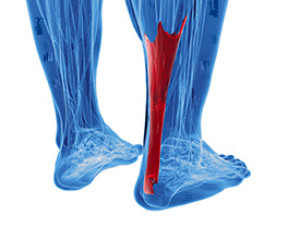 Many podiatrists are suspecting that Achilles tendon injuries will be on the rise especially amongst those aged 30 to 50. Every year, approximately 230,000 Achilles tendon injuries occur in the United States. While Achilles tendon injuries are typically common among young athletes, professionals suspect that the number of middle-aged and older patients sustaining Achilles tendon injuries is rising because they are staying active longer. The severity of Achilles tendon injuries can vary between mild to moderate. Injuries of this degree typically cause pain and stiffness but can heal on their own. Surgery may be necessary for more severe cases, such as the tearing or rupturing of the Achilles tendon.
Many podiatrists are suspecting that Achilles tendon injuries will be on the rise especially amongst those aged 30 to 50. Every year, approximately 230,000 Achilles tendon injuries occur in the United States. While Achilles tendon injuries are typically common among young athletes, professionals suspect that the number of middle-aged and older patients sustaining Achilles tendon injuries is rising because they are staying active longer. The severity of Achilles tendon injuries can vary between mild to moderate. Injuries of this degree typically cause pain and stiffness but can heal on their own. Surgery may be necessary for more severe cases, such as the tearing or rupturing of the Achilles tendon.
Achilles tendon injuries need immediate attention to avoid future complications. If you have any concerns, contact our podiatrists of Greater Queens Podiatry, PLLC. Our doctors can provide the care you need to keep you pain-free and on your feet.
What Is the Achilles Tendon?
The Achilles tendon is a tendon that connects the lower leg muscles and calf to the heel of the foot. It is the strongest tendon in the human body and is essential for making movement possible. Because this tendon is such an integral part of the body, any injuries to it can create immense difficulties and should immediately be presented to a doctor.
What Are the symptoms of an Achilles Tendon Injury?
There are various types of injuries that can affect the Achilles tendon. The two most common injuries are Achilles tendinitis and ruptures of the tendon.
Achilles Tendinitis Symptoms
Rupture Symptoms
Treatment and Prevention
Achilles tendon injuries are diagnosed by a thorough physical evaluation, which can include an MRI. Treatment involves rest, physical therapy, and in some cases, surgery. However, various preventative measures can be taken to avoid these injuries, such as:
If you have any questions please feel free to contact our office located in Bayside, NY. We offer the newest diagnostic tools and technology to treat your foot and ankle needs.
Read more about What are Achilles Tendon Injuries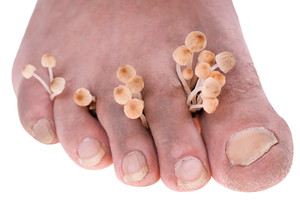 If you are experiencing symptoms such as the thickening and yellowing of your toenails, you may be suffering from toenail fungus. Toenail fungus thrives on dead tissues, dead skin cells, and keratin in our nails. Infections occur when our toenails are subjected to a moist environment, such as sweaty shoes. Toenail fungus often starts in the toenails first, and if left untreated, can spread to your fingernails as well. Treatment can involve antifungal drugs and laser therapy. If you have a case of toenail fungus, be sure to maintain proper foot hygiene and to dry properly after washing.
If you are experiencing symptoms such as the thickening and yellowing of your toenails, you may be suffering from toenail fungus. Toenail fungus thrives on dead tissues, dead skin cells, and keratin in our nails. Infections occur when our toenails are subjected to a moist environment, such as sweaty shoes. Toenail fungus often starts in the toenails first, and if left untreated, can spread to your fingernails as well. Treatment can involve antifungal drugs and laser therapy. If you have a case of toenail fungus, be sure to maintain proper foot hygiene and to dry properly after washing.
For more information about treatment, contact our podiatrists of Greater Queens Podiatry, PLLC. Our doctors can provide the care you need to keep you pain-free and on your feet.
Toenail Fungus Treatment
Toenail fungus is a condition that affects many people and can be especially hard to get rid of. Fortunately, there are several methods to go about treating and avoiding it.
Antifungals & Deterrence
Oral antifungal medicine has been shown to be effective in many cases. It is important to consult with a podiatrist to determine the proper regiment for you, or potentially explore other options.
Applying foot powder on the feet and shoes helps keep the feet free of moisture and sweat.
Sandals or open toed shoes – Wearing these will allow air movement and help keep feet dry. They also expose your feet to light, which fungus cannot tolerate. Socks with moisture wicking material also help as well.
If you have any questions please feel free to contact our office located in Bayside, NY. We offer the newest diagnostic tools and technology to treat your foot and ankle needs.
Read more about Toenail Fungus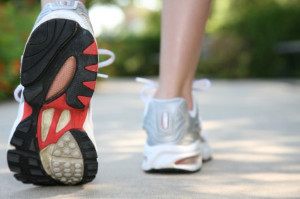 Plantar fasciitis is a foot condition that most commonly affects those between the ages of 30 to 55, especially those who are athletes. The plantar fascia, a ligament that runs beneath the sole of the foot, supports the arch of the foot and acts as a shock absorber. Repeated stress and impact to the heel, however, can cause the fascia to tear and become inflamed. This results in the foot condition, plantar fasciitis. While there are various specific causes of this condition, excessive pressure is often the culprit. To determine the cause of your plantar fasciitis and the most appropriate treatment, consult with your podiatrist.
Plantar fasciitis is a foot condition that most commonly affects those between the ages of 30 to 55, especially those who are athletes. The plantar fascia, a ligament that runs beneath the sole of the foot, supports the arch of the foot and acts as a shock absorber. Repeated stress and impact to the heel, however, can cause the fascia to tear and become inflamed. This results in the foot condition, plantar fasciitis. While there are various specific causes of this condition, excessive pressure is often the culprit. To determine the cause of your plantar fasciitis and the most appropriate treatment, consult with your podiatrist.
Plantar fasciitis can be very painful and inconvenient. If you are experiencing heel pain or symptoms of plantar fasciitis, contact our podiatrists from Greater Queens Podiatry, PLLC. Our doctors can provide the care you need to keep you pain-free and on your feet.
What Is Plantar Fasciitis?
Plantar fasciitis is the inflammation of the thick band of tissue that runs along the bottom of your foot, known as the plantar fascia, and causes mild to severe heel pain.
What Causes Plantar Fasciitis?
How Can It Be Treated?
While very treatable, plantar fasciitis is definitely not something that should be ignored. Especially in severe cases, speaking to your doctor right away is highly recommended to avoid complications and severe heel pain. Your podiatrist can work with you to provide the appropriate treatment options tailored to your condition.
If you have any questions please feel free to contact our office located in Bayside, NY. We offer the newest diagnostic and treatment technologies for all your foot and ankle needs.
Read more about Plantar Fasciitis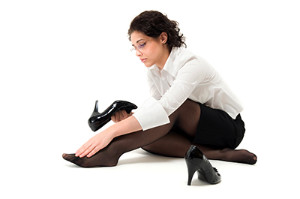 High heels have long held the stigma of being uncomfortable and unconventional for daily wear and for work. Health risks such as nerve damage, early arthritis, and long-term joint pain all come with long-term wear. Emerging business women, however, are looking to turn that notion around and develop high heels that do not damage the feet as much. Dolly Singh, CEO of a footwear company, is collaborating with designer Julia Thomas to create an office-friendly collection. When starting her brand, Singh recruited rocket scientists from SpaceX, along with a number of engineers to develop shoes. Her new collection will reportedly reduce the amount of pressure typically placed on the toes and the balls of the feet, using aerospace-grade foam and redesigned heels.
High heels have long held the stigma of being uncomfortable and unconventional for daily wear and for work. Health risks such as nerve damage, early arthritis, and long-term joint pain all come with long-term wear. Emerging business women, however, are looking to turn that notion around and develop high heels that do not damage the feet as much. Dolly Singh, CEO of a footwear company, is collaborating with designer Julia Thomas to create an office-friendly collection. When starting her brand, Singh recruited rocket scientists from SpaceX, along with a number of engineers to develop shoes. Her new collection will reportedly reduce the amount of pressure typically placed on the toes and the balls of the feet, using aerospace-grade foam and redesigned heels.
High heels have a history of causing foot and ankle problems. If you have any concerns about your feet or ankles, contact our podiatrists from Greater Queens Podiatry, PLLC. Our doctors can provide the care you need to keep you pain-free and on your feet.
Effects of High Heels on the Feet
High heels are popular shoes among women because of their many styles and societal appeal. Despite this, high heels can still cause many health problems if worn too frequently.
Which Parts of My Body Will Be Affected by High Heels?
What Kinds of Foot Problems Can Develop from Wearing High Heels?
How Can I Still Wear High Heels and Maintain Foot Health?
If you want to wear high heeled shoes, make sure that you are not wearing them every day, as this will help prevent long term physical problems. Try wearing thicker heels as opposed to stilettos to distribute weight more evenly across the feet. Always make sure you are wearing the proper shoes for the right occasion, such as sneakers for exercising. If you walk to work, try carrying your heels with you and changing into them once you arrive at work. Adding inserts to your heels can help cushion your feet and absorb shock. Full foot inserts or metatarsal pads are available.
If you have any questions please feel free to contact our office located in Bayside, NY. We offer the newest diagnostic and treatment technologies for all your foot and ankle needs.
Read more about Effect of High Heels on the Feet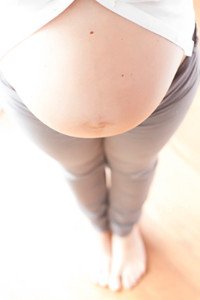 Pregnancy can create additional pressure on the feet, making certain everyday activities and responsibilities difficult for women. Women who work desk jobs should ensure that they’re sitting in chairs that offer optimal support, while women who spend a majority of their time standing should occasionally elevate their feet using a foot rest. Wearing comfortable shoes is also a must and should never be overlooked. Elevating the feet can also help pregnant women in managing edema, as the feet often swell during pregnancy.
Pregnancy can create additional pressure on the feet, making certain everyday activities and responsibilities difficult for women. Women who work desk jobs should ensure that they’re sitting in chairs that offer optimal support, while women who spend a majority of their time standing should occasionally elevate their feet using a foot rest. Wearing comfortable shoes is also a must and should never be overlooked. Elevating the feet can also help pregnant women in managing edema, as the feet often swell during pregnancy.
Pregnant women with swollen feet can be treated with a variety of different methods that are readily available. For more information about other cures for swollen feet during pregnancy, consult with our podiatrists from Greater Queens Podiatry, PLLC. Our doctors will attend to all of your foot and ankle needs.
What Foot Problems Can Arise During Pregnancy?
One problem that can occur is overpronation, which occurs when the arch of the foot flattens and tends to roll inward. This can cause pain and discomfort in your heels while you’re walking or even just standing up, trying to support your baby.
Another problem is edema, or swelling in the extremities. This often affects the feet during pregnancy but tends to occur in the later stages.
How Can I Keep My Feet Healthy During Pregnancy?
If you have any questions please feel free to contact our office located in Bayside, NY. We offer the newest diagnostic and treatment technologies for all your foot and ankle needs.
Read more about Pregnancy and Foot Health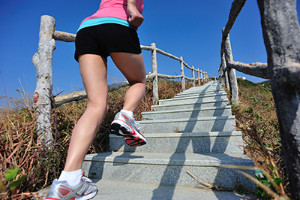 Exercising is just as important for the feet as it is for the rest of the body. While recent trends favor high intensity interval training (HIIT), opting for a lower intensity workout may be healthier and safer in managing one’s foot health. Immediately starting a high intensity workout puts the body at greater risk for developing injuries and conditions such as stress fractures, plantar fasciitis, inflamed tendons, and muscle strains. Instead of forcing the body to start an intense regimen, gradually build up your exercise to allow the body to adjust. A great way to start can include doing at least 30 minutes of cardio a day, such as brisk walking or cycling.
Exercising is just as important for the feet as it is for the rest of the body. While recent trends favor high intensity interval training (HIIT), opting for a lower intensity workout may be healthier and safer in managing one’s foot health. Immediately starting a high intensity workout puts the body at greater risk for developing injuries and conditions such as stress fractures, plantar fasciitis, inflamed tendons, and muscle strains. Instead of forcing the body to start an intense regimen, gradually build up your exercise to allow the body to adjust. A great way to start can include doing at least 30 minutes of cardio a day, such as brisk walking or cycling.
Exercising your feet regularly with the proper foot wear is a great way to prevent injuries and build strength. If you have any concerns about your feet, contact our podiatrists from Greater Queens Podiatry, PLLC. Our doctors can provide the care you need to keep you pain-free and on your feet.
Exercise for Your Feet
Exercise for your feet can help you gain strength, mobility and flexibility in your feet. They say that strengthening your feet can be just as rewarding as strengthening another part of the body. Your feet are very important, and we often forget about them in our daily tasks. But it is because of our feet that are we able to get going and do what we need to. For those of us fortunate enough to not have any foot problems, it is an important gesture to take care of them to ensure good health in the long run.
Some foot health exercises can include ankle pumps, tip-toeing, toe rises, lifting off the floor doing reps and sets, and flexing the toes. It is best to speak with Our doctors to determine an appropriate regimen for your needs. Everyone’s needs and bodies are different, and the activities required to maintain strength in the feet vary from individual to individual.
Once you get into a routine of doing regular exercise, you may notice a difference in your feet and how strong they may become.
If you have any questions please feel free to contact our office located in Bayside, NY. We offer the newest diagnostic and treatment technologies for all your foot and ankle needs.
Read more about Exercise for Your Feet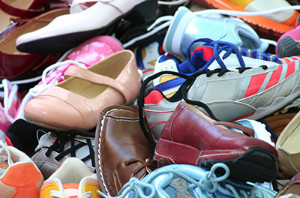 A campaign launched by the Salvation Army earlier this season aimed to keep children’s feet warm and dry this winter. The campaign, Boots for Yoops, collected boots, shoes, and socks for various children in need. Leonita Schweigert, the campaign’s creator, shared, “I decided instead of duplicating services and doing Coats for Kids like everybody does, that there are so many kids without proper shoes. To determine who exactly is in need of winter shoes, Schweigert contacted local schools to obtain names and sizes of children in need. New shoes and boots are being requested as to avoid potential health issues, such as Athlete’s foot. The campaign finished its run at the end of February.
A campaign launched by the Salvation Army earlier this season aimed to keep children’s feet warm and dry this winter. The campaign, Boots for Yoops, collected boots, shoes, and socks for various children in need. Leonita Schweigert, the campaign’s creator, shared, “I decided instead of duplicating services and doing Coats for Kids like everybody does, that there are so many kids without proper shoes. To determine who exactly is in need of winter shoes, Schweigert contacted local schools to obtain names and sizes of children in need. New shoes and boots are being requested as to avoid potential health issues, such as Athlete’s foot. The campaign finished its run at the end of February.
Making sure that your children maintain good foot health is very important as they grow. If you have any questions, contact our podiatrists of Greater Queens Podiatry, PLLC. Our doctors can provide the care you need to keep you pain-free and on your feet.
Keeping Children's Feet Healthy
Having healthy feet during childhood can help prevent medical problems later in life, namely in the back and legs. As children grow, their feet require different types of care. Here are some things to consider...
Although babies do not walk yet, it is still very important to take care of their feet.
Avoid putting tight shoes or socks on his or her feet.
Allow the baby to stretch and kick his or her feet to feel comfortable.
As a toddler, kids are now on the move and begin to develop differently. At this age, toddlers are getting a feel for walking, so don’t be alarmed if your toddler is unsteady or ‘walks funny’.
As your child gets older, it is important to teach them how to take care of their feet.
Show them proper hygiene to prevent infections such as fungus.
Be watchful for any pain or injury.
Have all injuries checked by a doctor as soon as possible.
Comfortable, protective shoes should always be worn, especially at play.
If you have any questions please feel free to contact our office located in Bayside, NY. We offer the newest diagnostic and treatment technologies for all your foot and ankle needs.
Read more about What to Do to Keep Your Child’s Feet Healthy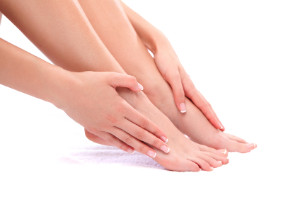 North Korean leader Kim Jong Un was recently seen limping in public, possibly due to his history of suffering from tarsal tunnel syndrome. The condition arises from the compression of the tibial nerve in the foot. The occurrence itself happened during a broadcasted report on the leader’s inspection visit to North Korea’s Kangwon Province. Symptoms of tarsal tunnel syndrome include a burning pain at the sole of the foot, numbness, or tingling. Treatment for tarsal tunnel syndrome may include anti-inflammatory medications and orthotics.
North Korean leader Kim Jong Un was recently seen limping in public, possibly due to his history of suffering from tarsal tunnel syndrome. The condition arises from the compression of the tibial nerve in the foot. The occurrence itself happened during a broadcasted report on the leader’s inspection visit to North Korea’s Kangwon Province. Symptoms of tarsal tunnel syndrome include a burning pain at the sole of the foot, numbness, or tingling. Treatment for tarsal tunnel syndrome may include anti-inflammatory medications and orthotics.
Tarsal tunnel syndrome can be very uncomfortable to live with. If you are experiencing tarsal tunnel syndrome, contact our podiatrists of Greater Queens Podiatry, PLLC. Our doctors can provide the care you need to keep you pain-free and on your feet.
Tarsal Tunnel Syndrome
Tarsal tunnel syndrome, which can also be called tibial nerve dysfunction, is an uncommon condition of misfiring peripheral nerves in the foot. The tibial nerve is the peripheral nerve in the leg responsible for sensation and movement of the foot and calf muscles. In tarsal tunnel syndrome, the tibial nerve is damaged, causing problems with movement and feeling in the foot of the affected leg.
Common Cause of Tarsal Tunnel Syndrome
The Effects of Tarsal Tunnel Syndrome
A physical exam of the leg can help identify the presence of tarsal tunnel syndrome. Medical tests, such as a nerve biopsy, are also used to diagnose the condition. Patients may receive physical therapy and prescriptive medication. In extreme cases, some may require surgery.
If you have any questions please feel free to contact our office located in Bayside, NY. We offer the newest diagnostic and treatment technologies for all your foot and ankle needs.
Read more about Tarsal Tunnel Syndrome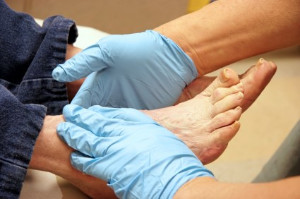 According to GlobalData, a data-driven consulting company, the amount of people with diabetic foot ulcers is rising and is likely to continue to rise going forward. In the seven major markets focused on in the epidemiology report (US, France, Germany, Italy, Spain, UK, and Japan), the trends were clear. The projected annual growth rate of both new cases of diabetic foot ulcers and repeat cases is north of 4%. The likelihood of having diabetic foot ulcers when you have diabetes increases if you live in a developing country, as opposed to a developed one. It is very important to be mindful of your feet when you have diabetes. Always check for sores and be conscious of any type of numbness.
According to GlobalData, a data-driven consulting company, the amount of people with diabetic foot ulcers is rising and is likely to continue to rise going forward. In the seven major markets focused on in the epidemiology report (US, France, Germany, Italy, Spain, UK, and Japan), the trends were clear. The projected annual growth rate of both new cases of diabetic foot ulcers and repeat cases is north of 4%. The likelihood of having diabetic foot ulcers when you have diabetes increases if you live in a developing country, as opposed to a developed one. It is very important to be mindful of your feet when you have diabetes. Always check for sores and be conscious of any type of numbness.
Diabetic foot care is important in preventing foot ailments such as ulcers. If you are suffering from diabetes or have any other concerns about your feet, contact our podiatrists from Greater Queens Podiatry, PLLC. Our doctors can provide the care you need to keep you pain-free and on your feet.
Diabetic Foot Care
Diabetes affects millions of people every year. The condition can damage blood vessels in many parts of the body, especially the feet. Because of this, taking care of your feet is essential if you have diabetes, and having a podiatrist help monitor your foot health is highly recommended.
The Importance of Caring for Your Feet
Patients with diabetes should have their doctor monitor their blood levels, as blood sugar levels play such a huge role in diabetic care. Monitoring these levels on a regular basis is highly advised.
It is always best to inform your healthcare professional of any concerns you may have regarding your feet, especially for diabetic patients. Early treatment and routine foot examinations are keys to maintaining proper health, especially because severe complications can arise if proper treatment is not applied.
If you have any questions please feel free to contact our office located in Bayside, NY. We offer the newest diagnostic and treatment technologies for all your foot and ankle needs.
Read more about How to Care for Diabetic Foot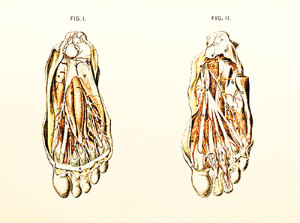 There are many different causes of numbness in your feet, ranging from trivial to potentially very serious. If your feet and legs are “falling asleep,” this is usually do to compression of the nerves. Because of this pressure, the nerves are not receiving the proper amount of blood and they are not able to communicate properly with the brain. Poor blood circulation to the lower extremities, especially the feet, can be a symptom of neuropathy. Diabetics should always take care to check their feet and make sure that nothing seems numb. Poor circulation might also be an indicator of peripheral artery disease (PAD). Make sure to see a podiatrist if you have numbness or feel that you have lack of blood flow to your feet.
There are many different causes of numbness in your feet, ranging from trivial to potentially very serious. If your feet and legs are “falling asleep,” this is usually do to compression of the nerves. Because of this pressure, the nerves are not receiving the proper amount of blood and they are not able to communicate properly with the brain. Poor blood circulation to the lower extremities, especially the feet, can be a symptom of neuropathy. Diabetics should always take care to check their feet and make sure that nothing seems numb. Poor circulation might also be an indicator of peripheral artery disease (PAD). Make sure to see a podiatrist if you have numbness or feel that you have lack of blood flow to your feet.
Poor circulation is a serious condition and needs immediate medical attention. If you have any concerns with poor circulation in your feet contact our podiatrists of Greater Queens Podiatry, PLLC. Our doctors will treat your foot and ankle needs.
Poor Circulation in the Feet
Poor blood circulation in the feet and legs is can be caused by peripheral artery disease (PAD), which is the result of a buildup of plaque in the arteries.
Plaque buildup or atherosclerosis results from excess calcium and cholesterol in the bloodstream. This can restrict the amount of blood which can flow through the arteries. Poor blood circulation in the feet and legs are sometimes caused by inflammation in the blood vessels, known as vasculitis.
Causes
Lack of oxygen and oxygen from poor blood circulation restricts muscle growth and development. It can also cause:
Those who have diabetes or smoke are at greatest risk for poor circulation, as are those who are over 50. If you have poor circulation in the feet and legs it may be caused by PAD and is important to make changes to your lifestyle in order to reduce risk of getting a heart attack or stroke. Exercise and maintaining a healthy lifestyle will dramatically improve conditions.
As always, see a podiatrist as he or she will assist in finding a regimen that suits you. A podiatrist can also prescribe you any needed medication.
If you have any questions please feel free to contact our office located in Bayside, NY. We offer the newest diagnostic and treatment technologies for all your foot and ankle needs.
Read more about Causes, Symptoms, and Treatment of Poor Blood Circulation in the Feet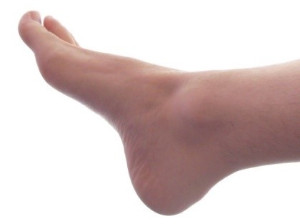 Pharmaceutical company Centrexion Therapeutics recently announced the positive trial results of its latest injectable therapy, CNTX-4975. The therapy is a non-opioid that draws from the painkilling capacity of capsaicin, a constituent of chili peppers. CNTX-4975 is in late-stage development for the treatment of pain from Morton’s neuroma and osteoarthritis. Morton’s neuroma is a condition that develops due to the swelling of the tissue surrounding one of the nerves leading to the toes. It often manifests into a sharp pain in the ball of the foot. Pain relief from a single injection of CNTX-4975 has been shown to last for six months.
Pharmaceutical company Centrexion Therapeutics recently announced the positive trial results of its latest injectable therapy, CNTX-4975. The therapy is a non-opioid that draws from the painkilling capacity of capsaicin, a constituent of chili peppers. CNTX-4975 is in late-stage development for the treatment of pain from Morton’s neuroma and osteoarthritis. Morton’s neuroma is a condition that develops due to the swelling of the tissue surrounding one of the nerves leading to the toes. It often manifests into a sharp pain in the ball of the foot. Pain relief from a single injection of CNTX-4975 has been shown to last for six months.
Morton’s neuroma is a very uncomfortable condition to live with. If you think you have Morton’s neuroma, contact our podiatrists of Greater Queens Podiatry, PLLC. Our doctors will attend to all of your foot and ankle needs and answer any of your related questions.
Morton’s Neuroma
Morton's neuroma is a painful foot condition that commonly affects the areas between the second and third or third and fourth toe, although other areas of the foot are also susceptible. Morton’s neuroma is caused by an inflamed nerve in the foot that is being squeezed and aggravated by surrounding bones.
What Increases the Chances of Having Morton’s Neuroma?
Morton’s neuroma is a very treatable condition. Orthotics and shoe inserts can often be used to alleviate the pain on the forefront of the feet. In more severe cases, corticosteroids can also be prescribed. In order to figure out the best treatment for your neuroma, it’s recommended to seek the care of a podiatrist who can diagnose your condition and provide different treatment options.
If you have any questions, please feel free to contact our office located in Bayside, NY. We offer the newest diagnostic and treatment technologies for all your foot care needs.
Read more about Morton's Neuroma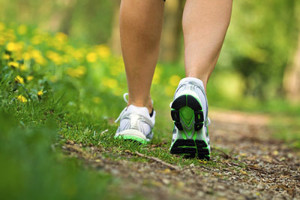 As running is an important activity, with up to as little as “five to 10 minutes of low-intensity running a day extend your life by several years,” our feet are a vital part of any kind of exercise. However, running is not without risk, as repetitive stress and impact from strenuous activity can lead to injuries such as runner’s knee, plantar fasciitis, pain, tears, and more. One tip for helping to build your stamina is to maintain a consistent exercise routine, slowly strengthening your muscles. Try cross-training with other activities to help build up your endurance. Take note of how you run, as poor form can increase the chance of an injury. When you run make sure your foot lands under your knee and avoid running when you’re tired.
As running is an important activity, with up to as little as “five to 10 minutes of low-intensity running a day extend your life by several years,” our feet are a vital part of any kind of exercise. However, running is not without risk, as repetitive stress and impact from strenuous activity can lead to injuries such as runner’s knee, plantar fasciitis, pain, tears, and more. One tip for helping to build your stamina is to maintain a consistent exercise routine, slowly strengthening your muscles. Try cross-training with other activities to help build up your endurance. Take note of how you run, as poor form can increase the chance of an injury. When you run make sure your foot lands under your knee and avoid running when you’re tired.
Exercising your feet regularly with the proper foot wear is a great way to prevent injuries. If you have any concerns about your feet, contact our podiatrists of Greater Queens Podiatry, PLLC. Our doctors will treat your foot and ankle needs.
How to Prevent Running Injuries
Many common running injuries are caused by overuse and overtraining. When the back of the kneecap starts wearing out and starts causing pain in your knee, this is commonly referred to as runner’s knee. Runner’s knee is a decrease in strength in your quadriceps and can occur if you’re not wearing properly fitted or supporting shoes. To prevent runner’s knee, focusing on hip strengthening is a good idea, as well as strengthening your quads to keep the kneecaps aligned.
What Are Some Causes of Running Injuries?
- One cause of a common running injury is called iliotibial band syndrome.
- Plantar fasciitis is also another common injury.
- Stress fractures can occur from overtraining, lack of calcium, or even your running style.
Best Ways to Prevent Running Injuries
- Wear footwear that fits properly and suits your running needs.
- Running shoes are the only protective gear that runners have to safeguard them from injury.
- Make a training schedule. Adding strengthening exercises as well as regular stretching can help keep you strong and limber and can lessen the possibility of injuries.
- Stretching keeps muscles limber; this will help you gain better flexibility.
If you have any questions please feel free to contact our office located in Bayside, NY. We offer the newest diagnostic and treatment technologies for all your foot and ankle needs.
Read more about How to Prevent Running Injuries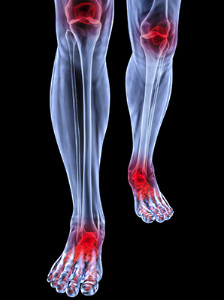 Arthritis is a very common disease that can affect joints in areas all over the body. Arthritis of the feet can be especially painful and debilitating due to the constant weight put on that section of the body. For someone with arthritic feet, every step taken can be excruciating. There are many different types of arthritis, though inflammatory arthritis can be one of the most devastating. Rheumatoid arthritis is one such type, where the cartilage of the joints is being destroyed. Though there is really no set diet to cure this illness, there are some recommended foods that may prove effective in helping mitigate some of the arthritic symptoms. The key is to reduce inflammation. Certain foods that help do just that are nuts, fish, and, dark vegetables.
Arthritis is a very common disease that can affect joints in areas all over the body. Arthritis of the feet can be especially painful and debilitating due to the constant weight put on that section of the body. For someone with arthritic feet, every step taken can be excruciating. There are many different types of arthritis, though inflammatory arthritis can be one of the most devastating. Rheumatoid arthritis is one such type, where the cartilage of the joints is being destroyed. Though there is really no set diet to cure this illness, there are some recommended foods that may prove effective in helping mitigate some of the arthritic symptoms. The key is to reduce inflammation. Certain foods that help do just that are nuts, fish, and, dark vegetables.
Arthritis can be a difficult condition to live with. If you are seeking treatment, contact our podiatrists from Greater Queens Podiatry, PLLC. Our doctors can provide the care you need to keep you pain-free and on your feet.
Arthritic Foot Care
Arthritis is a joint disorder that involves the inflammation of different joints in your body, such as those in your feet. Arthritis is often caused by a degenerative joint disease and causes mild to severe pain in all affected areas. In addition to this, swelling and stiffness in the affected joints can also be a common symptom of arthritis.
In many cases, wearing ill-fitting shoes can worsen the effects and pain of arthritis. Wearing shoes that have a lower heel and extra room can help your feet feel more comfortable. In cases of rheumatoid arthritis, the arch in your foot may become problematic. Buying shoes with proper arch support that contour to your feet can help immensely.
Alleviating Arthritic Pain
It is best to see your doctor for the treatment that is right for your needs and symptoms. Conditions vary, and a podiatrist can help you determine the right method of care for your feet.
If you have any questions, please feel free to contact our office located in Bayside, NY. We offer the newest diagnostic tools and technology to treat your foot and ankle needs.
Read more about Arthritic Foot Care| Bayside Office 4401 Francis Lewis Blvd Suite L3B Bayside, NY 11361 Phone: (718) 229-0222 Fax: (718) 717-0275 | Monday: 9:30am - 7pm |
E-mail us with any questions